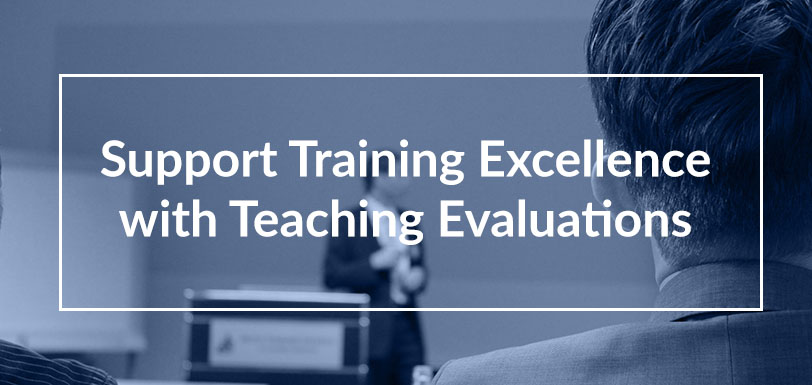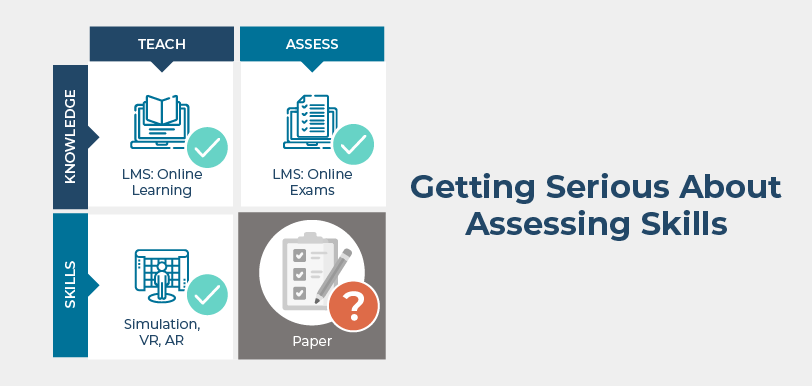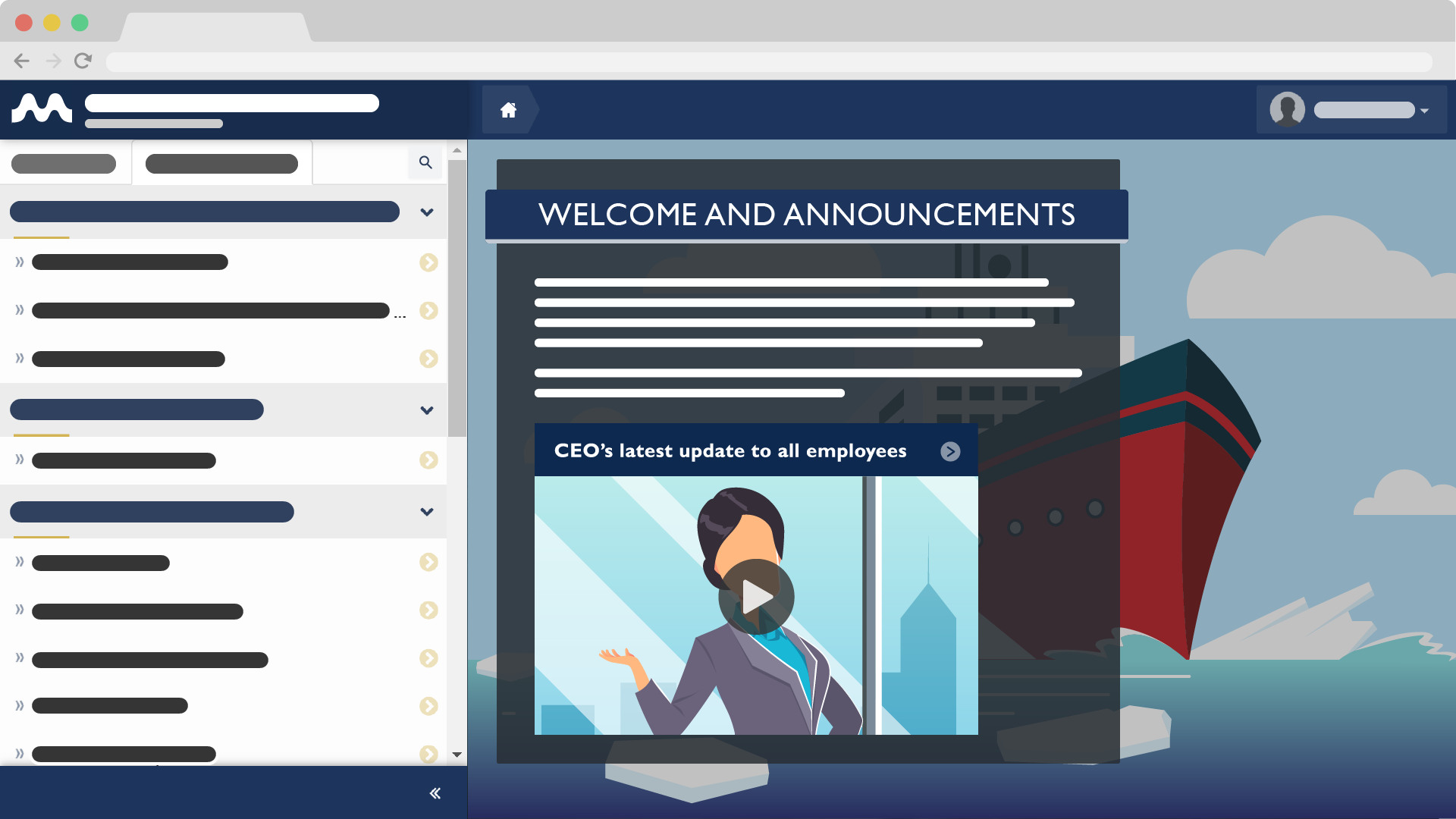Support Training Excellence with Teaching Evaluations
Jul 12, 2017 Murray Goldberg 0 Teaching, TipsIntroduction
Teaching evaluations are a critical part of any training program. It benefits the trainer, the trainees and the organization as a whole. Yet surprisingly, although they are common, they are not universal! And even when they are done, they are often not used to their full advantage.
The previous two blog posts gave an introduction on teaching evaluations and tips on how to deliver them. This week, I’d like to conclude the discussion by talking about how a maritime college or vessel operator can use evaluations to show support for training excellence.
Organizational Support for Training Excellence
Teaching evaluations help set a culture of training excellence. That culture has start from the top. If it is, it will flow throughout the organization. Setting this culture means demonstrating that training excellence is expected and supported. From personal experience, this makes a huge difference to training performance. There are several ways to accomplish this:
1. Establish Policies
One way to demonstrate that an organization values training is to have enforced policies around the delivery and handling of teaching evaluations. I mentioned previously that at UBC, where I was a faculty member, there were strict policies on how the evaluations were distributed to the students, how they were collected, and how the feedback was given to the faculty members. These policies were set and communicated to faculty members each term. They ensured that students could not be negatively affected by their comments, and that they could not be manipulated by the instructors.
2. Summarize Results for the Trainers
Another way to support instructors is for an organization to provide administrative help in summarizing the teaching evaluations. For example, the numerical scores for the various questions can be summarized and averaged. The written comments can be collected and formatted either online or on paper. This helps instructors by providing them with easy access to general trends of the students. In addition, an organization can provide year-over-year comparisons for that instructor, as well as comparisons to other instructors (especially those who have taught the same course). This helps the instructor gauge how they are faring with respect to their colleagues. Administrative help in creating reports is further evidence of the organizational commitment to training excellence.
3. Demonstrate a Commitment to Training
One of the most important demonstrations of commitment to training is who reads the evaluations. At UBC, I was always impressed that the head of the department read every single teaching evaluation for all thirty faculty members. Nothing shows organizational commitment better than busy people at the top taking time out of their schedule to monitor and support training excellence. Of course, the reaction to the evaluations must also be supportive as opposed to punitive.
4. Celebrate Success
At UBC, the head of the department was very supportive. In fact, one of the outcomes of the department head’s reading of the evaluations was the twice-yearly “Incredible Instructor Awards”. At the end of each term, all faculty members were invited to free coffee and cake for the presentation of the teaching awards. Awards were given in various categories, such as best instructor, most improved, etc. Although you may consider such gestures shallow and simplistic, they were much appreciated and further displayed support and commitment.
5. Enable Improvement
Finally – what happens when evaluations indicate that there is room for improvement? As expected, an organization that values training will provide the tools needed to help the instructor close the gap between where they are, and where they want to be. For example, at UBC, there were series of teaching effectiveness seminars conducted by the center for “Teaching and Academic Growth” (TAG). TAG provided excellent courses on all aspects of teaching including technique, pedagogy, technology, and so on. Faculty members with specialties in one area or another were invited to teach these seminars.
While not every organization has the resources of a large university, there are equally effective and less costly alternatives for small organizations. For example, it is easy to organize a regular informal seminar series where effective trainers in the organization make a small presentation on how they have found success. This can be followed by a group discussion. If more resources are available, trainers can be brought in on a regular basis to provide insight into what makes for effective training.
In general, anything you can do as an organization to raise the level of discussion on training effectiveness will yield benefits not only in training performance, but also in terms of training culture and dedication.
Conclusion
Training evaluations, handled properly, are a simple yet powerful tool to achieve excellence in training. They help individual trainers improve their training, and they help raise the discussion surrounding training issues. Finally, they are highly valuable as a tool to set and demonstrate a culture of organizational training excellence.
Follow this Blog!
Receive email notifications whenever a new maritime training article is posted. Enter your email address below:
Interested in Marine Learning Systems?
Contact us here to learn how you can upgrade your training delivery and management process to achieve superior safety and crew performance.






